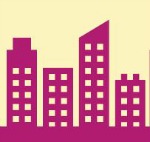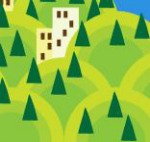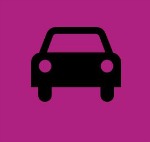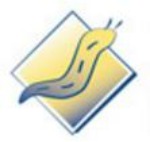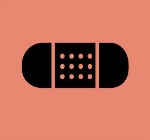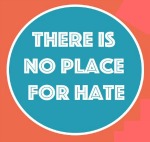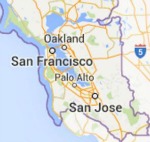Resources
Before move-in, consult the What to Bring and What Not to Bring to College guide on the housing website for how to pack for residence hall living. UCSC is committed to environmentalism, read the Green Tips - for living sustainably at UCSC.
Edge students who live on-campus and need continuous housing between the end of the summer and the start of the fall academic year can apply for transitional housing through Student Housing Online (studenthousing.ucsc.edu).
Summer-Fall Transitional Housing is available to students who live in Session 2 or 10-week summer session housing and also have a fall housing assignment. Students in Summer-Fall Transitional Housing are eligible to relocate to their fall housing assignment at the conclusion of the summer housing contract as part of the early arrivals program (additional early arrival fees apply).
eduroam is the encrypted wireless service at UC Santa Cruz that allows students, faculty, staff, and visitors from other participating institutions to connect securely to the Internet. How to Use eduroam
ResWiFi is the encrypted network service offered to UCSC students living on campus in the residential halls. How to Use ResWiFi
Submit support request at Get Help. Refer to Residential Network Services (ResNet) instructions on how to contact a ResNet staff member.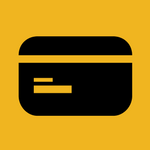
New student ID cards are only available during the summer for Summer Edge students living on campus. ID Card Services can make your fall ID this summer, but you must submit a photo online
Summer Dining Website (bookmark for most up-to-date information).
Meal Plan Tips: Your Slug Points are valid from the first day of the housing contract period through the last day of the contract period. Slug Points are non-transferable, non-refundable, and do not carry over to fall. So be sure you use them, so you don't lose them!
First and Last Meals and Dining Regulations: Dinner will be the first meal served in the campus dining halls on the day residences open for the contract period. Breakfast will be the last meal served on the final day of the contract period.
Menu: Daily menus with nutrition facts will be made available online.
You cannot purchase textbooks on campus. Course material ordering, including books, is done entirely online at ucsc.textbookx.com. Visit the website to order and have your materials shipped to your home or campus while digital course material access is emailed. The earlier you order, the more chances you will find the best deals. It's recommended that you order 2-3 weeks before the start of your summer class. More information is at the Bay Tree Campus Store website.
You can also visit the library Course Reserves and search for course materials by course code, instructor, or title. Educational Opportunity Program (EOP) students may be eligible to utilize the Textbook Lending Library (TLL).
All students can keep a car on campus during the summer, but you must have a valid parking permit to avoid tickets. You can purchase parking permits for the campus remote parking lots only. Remote lots are frequently served by campus shuttles. You can buy permits: daily, weekly, monthly, or by session.
Visit the TAPS Summer Session Parking website for more information, rates, and application.
If you are eligible to have a car on campus in the fall, be sure to submit your application early - parking is limited and will sell out.

College-level courses can be challenging, but there are resources to support your academic success.
Learning Support Services (LSS) supports a number of Summer Session classes with either Modified Supplemental Instruction (MSI), Small Group Tutoring or a combination of both. See a list of currently supported summer classes here: lss.ucsc.edu/programs/supported-classes. You are guaranteed one hour a week of free extra tutoring through LSS. For more information, call 831.459.4333 or visit them at 221 Academic Resources Center (ARCenter). The ARCenter is a short walk away from the McHenry Library, the Music Center, and Theater Arts.
Academic Excellence (ACE) Program provides support for some summer classes. The ACE Program is an academic success program dedicated to increasing the diversity of students who graduate with bachelor's degrees in science, technology, engineering, and mathematics through academic support, peer mentoring, networking, and community building. For more information, call 831-459-5280 or email ace@ucsc.edu.
McHenry Library offers student-centered hours and a variety of individual and group study spaces spread over five floors. The Science & Engineering Library has limited access during Summer. The entry-level computer lab and study spaces will remain open and accessible.
For the most up-to-date schedule, visit guides.library.ucsc.edu/libraryhours.
Athletics & Recreation is where you'll find the gym, pool and summer FitLife group exercise classes.
UCSC is a walking campus. Use the amazing network of paths and trails for the most direct route from place to place on campus. Walking can be much quicker than riding shuttles. Remember to bring a good pair of walking shoes with you. Campus walking maps are also available online at taps.ucsc.edu/commute-options/walking.html.
Shuttles - Operated by TAPS (Transportation and Parking Services), these “loop” buses (white) to get from one place to another ON CAMPUS when walking isn’t an option. No need to show your student ID on-campus shuttles. Campus shuttles are free!
Metro buses (blue) to go to OFF-CAMPUS destinations. Have your student ID card with a current summer sticker ready to show the driver (or pay a $2 fare if no ID). Note: Metro policy prevents drivers from allowing items over 5 feet in length (including surfboards).
Transportation Accommodation Authorizations
The DRC can authorize parking or Disability Van Service accommodations for those with a legitimate disability-related need for that assistance.
The Disability Van Service is operated by Transportation and Parking Services (TAPS) and can provide door-to-door service throughout campus free of charge with authorization from the DRC.
For those who have DMV handicapped placards or cannot use the Disability Van Service for disability-related reasons, parking authorizations can be obtained from the DRC. For more information on campus policy regarding disability parking, go to Disabled Parking.
If you use a wheelchair or have problems with stairs or hills, check out the ADA Compliance website to learn more about campus access.
All bikes operated on the UC Santa Cruz campus must have a current California bicycle license. For a free bike license take your bike to the UCSC Recreation Department, upstairs at the East Field House. Summer hours are posted at recreation.ucsc.edu. Phone: 831-459-2806
Bike Lockers: 24 “smart” bike lockers are available at six UCSC locations including: OPERS (north of building entrance), Baskin Engineering (east end of building), Engineering 2 (east end near Baskin Circle), Science & Engineering Library, Porter, Coastal Science Campus. These lockers are operated as part of the Bikelink network, and a fee of $.05 per hour will be collected at the locker. The maximum rental time for any one rental period is ten days. Only a bicycle and its accessories may be stored in the locker. To purchase a BikeLink card for use of the bike lockers, register online at bikelink.org.
Fixit Bike Repair Stations: Fixit bike repair stations include all the tools necessary to perform basic repairs and maintenance right on campus. Fixit stations are located at Baskin Engineering, Main Entrance Transit Stop, McHenry Library, Performing Arts parking lot, and OPERS.
Electric Bikes: Electric bikes can park at any of the campus bike racks that are located near UCSC buildings.
Metro Bus Bike Racks: Buses are equipped with front-loading bike racks that carry three bikes at a time. Bikes are not allowed inside buses. Bikes can be loaded and unloaded at all stops. Don’t forget your helmet!
Bus/bike tips:
- Try to sit towards the front of the bus. You can keep an eye on your bike and get off at the front exit, so you can get to your bike quicker.
- It helps to tell the bus driver you’ll be getting your bike off the rack when you exit the bus (this can prevent bus drivers from leaving before you get your bike!)
- If you forget your bike on the bike rack, go to the Metro Center downtown. There is usually a security officer there and you can tell them what your bike looks like and they’ll look for it in the back (lots of people forget about their bikes).
ACCESSIBILITY: All campus transit buses are lift-equipped and accessible to disabled passengers. Contact: taps@ucsc.edu or taps.ucsc.edu
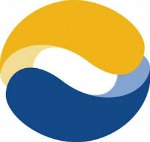
UCSC employs over 4,000 students in part-time positions such as lifeguards, research assistants, tutors, programmers, tour guides, and more!
The UC Santa Cruz Career Center is a one-stop resource center and they offer Summer Session students access to on-campus, summer-only jobs.
Student Employment
On-campus non-work study and work-study jobs, and frequently asked questions.Internships & Volunteer Reasons, resources, sites, and advice on volunteering and internships.
Diversity Career Sites
Career sites for students of color, disabled, LGBTQ, veterans, women and international students.Undergraduate Research Positions
Get involved in undergraduate research in all disciplines both on and off campus.Contact: 831.459.4420 or career-center@ucsc.edu
Located across from College Nine and John R. Lewis College, the Student Health Center provides quality health care focused on the particular needs of students.
Their facility is staffed by
board certified physicians, nurse practitioners, physician assistants, and nurses. Students are seen by appointment and in Same Day Clinic. In case of emergencies, either during the day or after normal operating hours, please call 911.The Student Health Center offers routine medical appointments, same day care, counseling & psychiatry services (CAPS), optometry, health promotion programs (SHOP), X-ray, and full laboratory and pharmacy services on site. For questions, visit:
Medical: call the free nurse advice line (831) 459-2591 24/7 or use Health e-Messenger
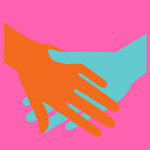
UCSC Resource Centers offer counter-spaces for students who are queer, trans, nonbinary, womxn, and people of color, as well as impact institutional policies and campus climate.
African American Resource and Cultural Center (AARCC)
American Indian Resource Center (AIRC)
Asian American/Pacific Islander Resource Center (AA/PIRC)
Chicanx Latinx Resource Center (El Centro)
Students as parents face unique challenges and often have competing responsibilities between their work and home lives. These resources were compiled by students who are parents working in conjunction with campus programs that support undergraduate and graduate students who are raising children at UC Santa Cruz.
Childcare and schooling
Communities
Enrichment programs for children
Financial aid
Health and wellness
Housing
Lactation roomsThe University of California, Santa Cruz is a community, which requires the free and open exchange of ideas and the widest possible range of opportunity in the pursuit of knowledge in order to thrive. We are committed to maintaining an objective, civil, and supportive community, free of coercion, intimidation, dehumanization or exploitation. —Hate-Bias Policy, Appendix M, Student Policies and Regulations Handbook
If you believe you have witnessed, or that you have been a target of, a hate- or bias-motivated incident on campus or while participating in a University-sponsored activity, you may bring the incident to the attention of the Hate/Bias Response Team:
Fill out an electronic or a paper reporting form: UCSC Hate- or Bias-Motivated Incident Reporting Form (online) or UCSC Hate- or Bias-Motivated Incident Reporting Form (pdf)- you can print and submit this form by email, fax or by dropping it off at the Dean of Students office: (831) 459-4446 or reporthate@ucsc.edu
You may also report directly to the UCSC Police Department - 831.459.2231
for emergencies - dial 911
UCPD Anonymous tip line - (voice mail only) 831.459.3847
The Title IX Office encourages reporting of suspected sexual violence and sexual harassment (SVSH) and any gender based discrimination or harassment. There is no timeline for reporting but it is helpful to report as soon as possible, in order for appropriate and timely action to be taken. When the Title IX Office receives a report it can provide safety and supportive measures, including: no contact directives, accommodations (housing, transportation, academic, and employment), and other safety measures as needed.
Please note that all UC employees, unless confidential, are required to report SVSH involving a student to the Title IX Office. When a Title IX report is made by a third party, Title IX staff will reach out via email to the potential complainant to inform them of their reporting options and the resources and safety measures that are available.
To make a Title IX report or request a consultation you may use the online reporting form or call 831-459-2462.
You may also report sexual violence directly to the UCSC Police Department - 831-459-2231

Ride the Santa Cruz Metro buses! They’re free with your Student ID. Showing a valid UCSC Student ID card provides students unlimited rides on Santa Cruz Metro buses. For the most up-to-date route information, visit scmtd.com/en/routes/schedules. Notice that the schedules vary between Summer and the rest of the school year.
The metro station is located downtown on Pacific Avenue and is the first and final destination of local bus routes. Routes 3-8 will take you around the East and West sides of Santa Cruz. Routes 10-20 will take you to campus from various parts of town. Routes 69-71 will take you to the Capitola Mall and Aptos/Soquel/Watsonville area.
Tip: Transit is a useful smartphone app that will give you public transportation and walking routes from point A to point B. This is an easy way to get used to bus schedules and plan routes around town.
Here are a few popular routes for getting off campus to explore Santa Cruz, the beach, or downtown.
Route 10 UCSC VIA HIGH STREET is the fastest, most direct route to downtown Santa Cruz. Destinations along Route 10 include 7/11 (High St. & Cardiff Terrace), many local churches, The Abbey Coffee Lounge, Trader Joe’s (Front St.), CVS (Front St.), and all downtown businesses.
Route 16 UCSC VIA LAUREL EAST will help get you to destinations along Mission St. (near Bay St.) and downtown.
Route 19 UCSC VIA LOWER BAY takes longer to reach downtown. After leaving campus, Route 19 buses travel down Bay St. all the way to West Cliff Drive (they do not turn onto Mission St.). After passing the wharf, beach, and Boardwalk area, this route continues on to downtown Santa Cruz. Destinations along Route 19 include West Cliff Drive (scenic ocean walking/ bike path), Santa Cruz Wharf, Cowell Beach, Santa Cruz Pier/Boardwalk.
Route 20 UCSC VIA WESTSIDE longest route to downtown. Route 20 buses are not ideal for downtown as they take longer. Destinations along Route 20 include Western Drive, Natural Bridges State Beach, Long Marine Lab, and the Seymour Center [free with student ID with valid sticker] (0.3-mile walk from Delaware Ave/Natural Bridges stop), 2300 Delaware (a UCSC facility).
Route 66-69 depart from Lane 4 of the metro center and drop you off right in front of Capitola Mall.
Getting Back On Campus
Buses run less frequently during the summer. Although it is the shortest, the last Route 10 bus leaves the metro station at 6:50 p.m. M-F and 5:50 p.m. Sat and Sun so other routes must be taken to get back up to campus after that. Route 16 UCSC VIA LAUREL EAST runs the latest. The last Route 16 bus leaves from downtown to campus at 11:15 pm M-F and 11 p.m. on Sat and Sun. Please be aware that this is the last Metro bus up to campus for the night.Going to San Jose? Catch the Highway 17 Express. $7 CASH to ride.
Highway 17 Express buses travel between the Santa Cruz METRO bus station (downtown Santa Cruz) and the San Jose Diridon Train Station, providing connecting service to Amtrak Capitol Corridor and Coast Starlight trains, CalTrain, and VTA buses and light rail.
From San Jose to Peninsula Cities (including San Francisco)
At the San Jose Diridon station take a Northbound Line/San Francisco Caltrain to get to any of these peninsula cities: Santa Clara, Sunnyvale, Mountain View, Palo Alto, Menlo Park, Atherton, Redwood City, San Carlos, Belmont, Hillsdale, San Mateo, Burlingame, Millbrae, San Bruno, South San Francisco and San Francisco. The Caltrain fare chart is available at caltrain.com/Fares/farechart.html. The Caltrain system map is available caltrain.com/stations/systemmap.html.
More information on getting to airports and other cities can be found on the TAPS website.
Carsharing and Ridesharing
Zipcar - zipcar.com/ucsc
No need to bring a car to Santa Cruz! Zipcar is an innovative, membership-based car rental program that gives you self-service access to vehicles on and off campus, 24 hours a day. Licensed drivers 18 years of age and older are eligible to apply.
Zimride - zimride.com/ucsc
UCSC subscribes to Zimride, a ride-matching service just for UCSC students and employees. Use this service for single-use trips like getting to the airport or going home for the holidays, as well as regular rides to off-campus locations.
